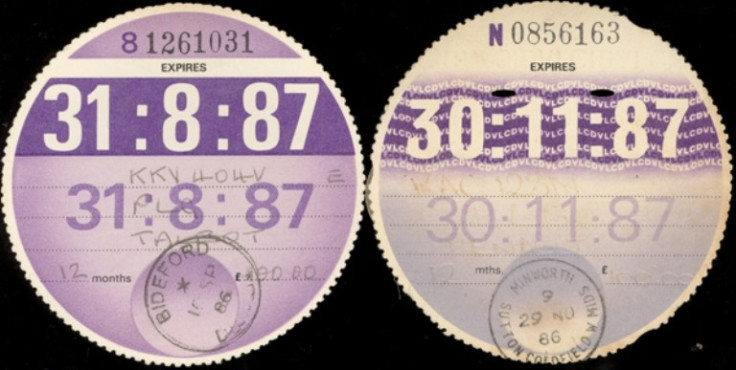Car Tax Discs No Longer Needed on UK Windscreens from Wednesday 1 October

The paper car-tax disc that British motorists have been obliged to display in their windscreens for more than 90 years reaches the end of the road this week.
From Wednesday 1 October, car owners in the UK will no longer need to display the vehicle excise duty (VED) disc, which was first introduced in 1921.
The plans were revealed by Chancellor George Osborne in his autumn statement last year, when he said the tax disc was to be abolished after 93 years in favour of an electronic system administered by the Driver and Vehicle Licensing Agency (DVLA).
Around 44 million tax discs were issued in the UK in 2012, and drivers currently have the option to pay VED in 12 or six monthly instalments. Under the new system they will be able to pay monthly by direct debit, though this will cost 5% more than paying the whole amount at once.
At present, drivers with an out of date disc, or who are using a fake disc, face hefty fines. However, most of the 600,000 people against whom the DVLA took action in 2012 were caught as a result of computer analysis rather than someone checking their windscreen.
'Open to fraud'
Motoring organisation RAC has expressed fears that the end of the paper disc will see the number of motorists failing to pay vehicle tax soar to become as high as the number of people who drive without insurance.
The motoring organisation say the change could result in a £167m a year loss to the Exchequer.
These fears are echoed by drivers who were scathing about the new proposals when they were revealed last year. A number of motorists pointed out that it will be harder for the authorities to tell if a car has been abandoned when there is no tax disc.
However the DVLA refutes these claims, saying there is "no basis" to the RAC figures, adding that it was "nonsense" to suggest getting rid of the tax disc would lead to an increase in vehicle tax evasion.
The Treasury also stated that they expect the changes to save businesses £7m a year. A spokesman said: "This is a visual symbol of how we are moving government into the modern age and making dealing with government more hassle-free."
© Copyright IBTimes 2025. All rights reserved.



















